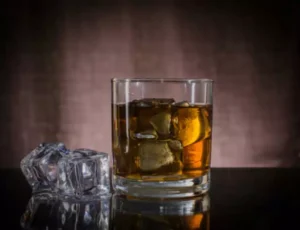
If you are curious about the overall effects of alcohol on depression, it is important to learn more about how this substance and mental health disorder affect one another. Alcohol and depression can contribute to symptoms in even indirect ways. Drinking alcohol is known to trigger dopamine release and activate the reward system in a person’s brain. If you drink heavily on a regular basis, however, the depressive effects of alcohol may become a part of your daily life. If you’re in recovery, and depression is a drinking trigger for you, this can make things especially difficult.
Reach out to a mental health professional to talk about treatment and strategies for dealing with depression. Major depression and alcohol use disorder are also co-dependent in women, research suggests. Women with depression are also more likely to engage in binge drinking. However, the flip side is that people who frequently use alcohol are more likely to also be depressed. Drinking a lot may worsen these feelings, which may actually drive further drinking. Retirees show more signs of depression than those who are still working—and heavy drinking may make their symptoms worse, a new study tracking tens of thousands of over-50s in the U.S reveals.

Her fields of interest include Asian languages and literature, Japanese translation, cooking, natural sciences, sex positivity, and mental health. In particular, she’s committed to helping decrease stigma around mental health issues. It can get worse over time, especially when combined with regular or heavy alcohol use. These blues usually don’t linger, though, so you’ll probably feel better in a day or so. Taking some does alcohol make depression worse time for productive relaxation can also help ease feelings of depression.

The actual development of depressive disorder and alcohol use disorder is related to a worse prognosis for both disorders and greater severity. Technically speaking, alcohol is classified as a central nervous system (CNS) depressant. This classification is based on how alcohol affects the brain and nervous system. Despite its initial stimulating effects that might lead to feelings of euphoria or increased social interaction, alcohol fundamentally slows down brain function and neural communication. As a CNS depressant, it impacts various aspects of physical and mental functioning, leading to slowed reaction times, impaired judgment, and reduced coordination. By stimulating these two regions, alcohol can make you feel more relaxed, confident, at ease, and positive overall.

In the shorter term, without intervention to change drinking habits, researchers expect 100 additional deaths and 2,800 additional cases of liver failure between 2020 and 2023. Other reasons for the uptick included boredom and availability of alcohol. When alcohol hits the brain, it triggers a number of changes, including the release of the body’s feel-good chemicals. This is why, at first, alcohol can make our brain experience relief from distress. But “the rebound effect is that it can actually exacerbate” negative emotional states, says Amy Goodwin, an addiction counselor at UCHealth in Steamboat Springs, Colorado. Among people with major depressive disorder, the co-occurrence of AUD ranges from 27 to 40 percent over a lifetime, according to the National Institute on Alcohol Abuse and Alcoholism (NIAAA).

This treatment approach is more direct than medications and can produce excellent results. A dual diagnosis can be complicated to treat, no matter the circumstances. The most common treatment options are included below, but know that recovery requires a personalized treatment plan that best suits your mental https://ecosoberhouse.com/ health needs. Some experts also suggest that both depression and alcohol use disorders share underlying pathophysiology in that they are both neuroinflammatory conditions. Though depression is experienced by many, it can often go undiagnosed and untreated. You don’t have to battle the depression alone and relying on alcohol to make you feel better will only cause further pain.
This disruption in brain chemistry is a primary reason why alcohol can worsen depression and contribute to a cycle of dependence and emotional dysregulation. According to WebMD, nearly one-third of people with severe depression abuse alcohol. Research also shows that children who are depressed are more likely to develop problems with alcohol abuse once they reach adolescence. Studies have shown that, among people abusing alcohol, somewhere between 30 percent and 50 percent suffer depressive symptoms at any given time. Both alcohol use disorder and depression are treated simultaneously. Both alcohol use disorder and depression must be treated at the same time.

Alcohol use disorder and depression are two conditions that often occur together. What’s more, one can make the other worse in a cycle that’s pervasive and problematic if not addressed and treated. However, this doesn’t mean they advocate regularly having a drink or two to adjust to retirement.
Alcohol can significantly worsen depression, leading to a harmful cycle of dependency and deteriorating mental health. Understanding the risks of self-medicating with alcohol and seeking appropriate treatment for both depression and alcohol addiction is crucial. At Verve Behavioral Health, we alcoholism treatment offer specialized care to help you break free from this cycle and support your journey toward recovery. If you or someone you know is struggling with depression and alcohol use, don’t hesitate to reach out for help. At Live Free Recovery Services, we understand the strong connection between alcohol use and depression, including conditions like major depressive disorder. Our programs take a dual-diagnosis treatment approach, addressing both alcohol dependence and feelings of depression to ensure comprehensive care tailored to each client’s individual needs.